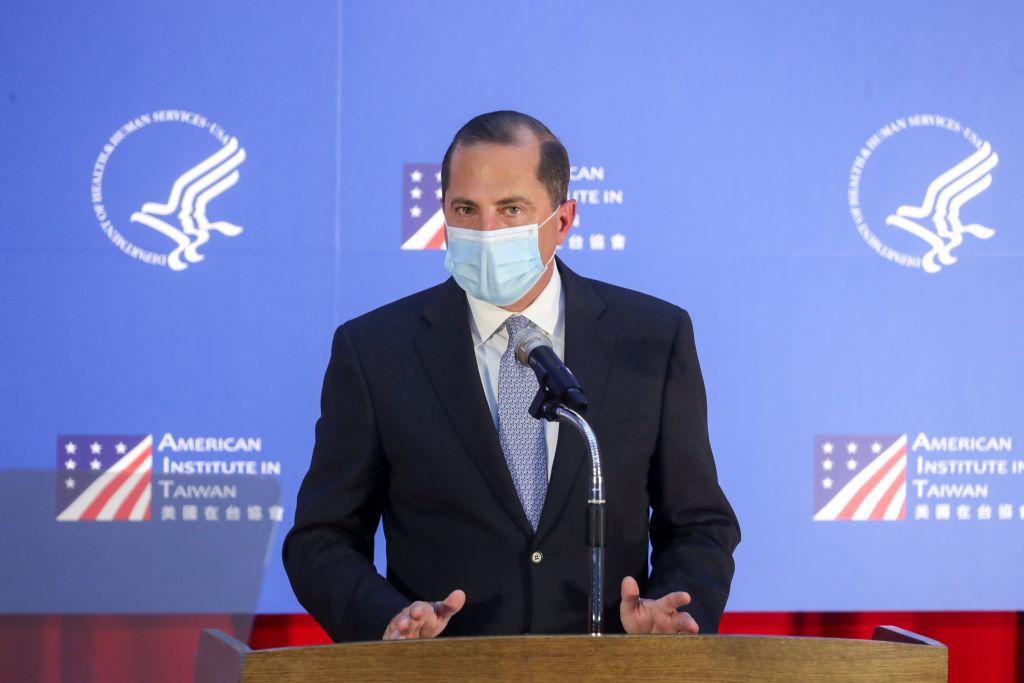TAIPEI, Taiwan—U.S. Health and Human Services (HHS) Secretary Alex Azar delivered harsh criticism of the Chinese Communist Party (CCP) over its mishandling of the coronavirus outbreak, in a speech given at a local university on Aug. 11.
Azar pointed out the sharp contrast between democratic Taiwan and communist China over their handling of the outbreak caused by the CCP virus, commonly known as the novel coronavirus.





